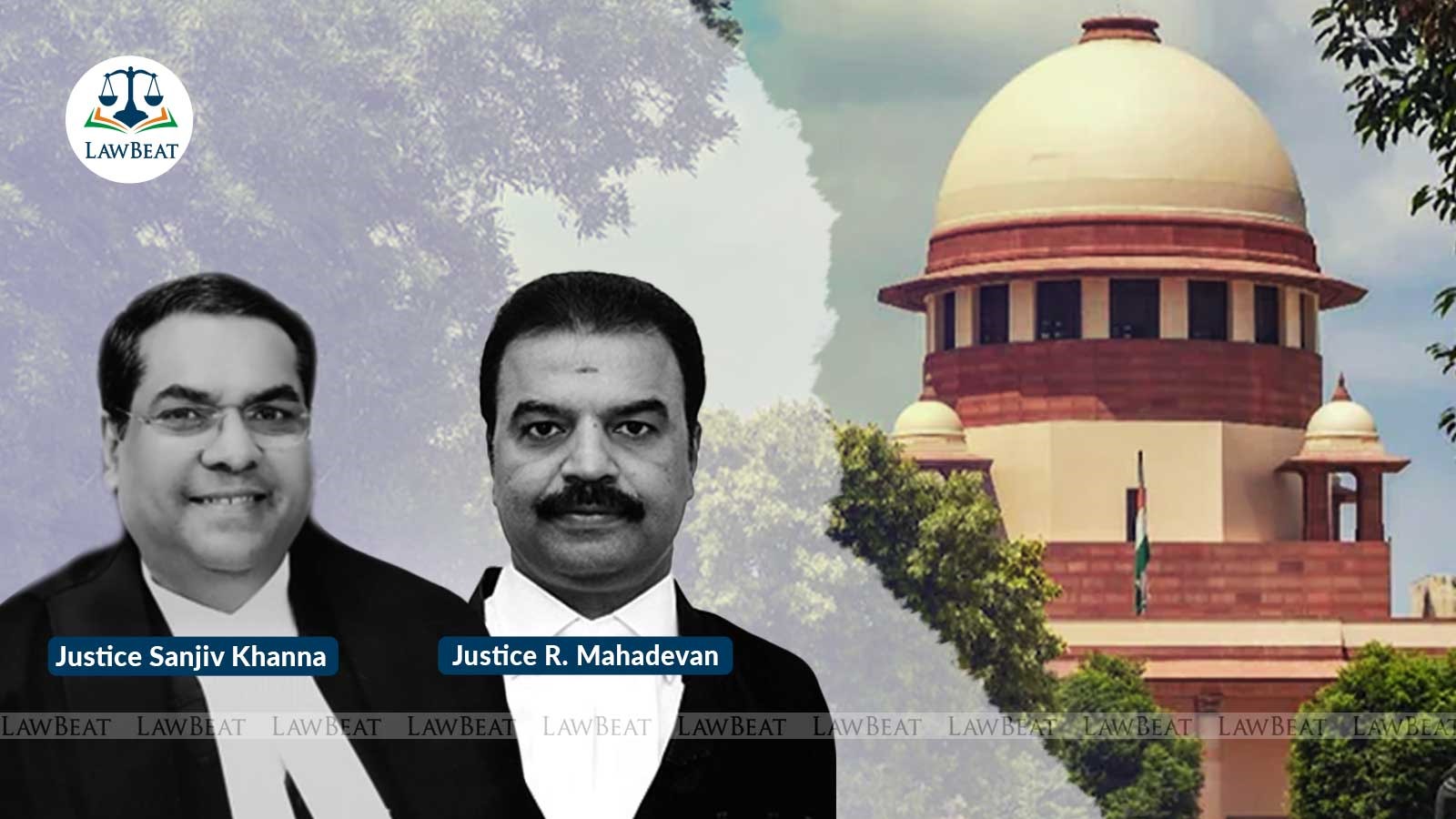Arbitral Award Time Extension Application Valid Beyond 18 Months: SC

Court felt a restrictive interpretation would lead to rigour, impediments and complexities
The Supreme Court has held that an application for an extension of the time period for passing an arbitral award under Section 29A(4) read with Section 29A(5) of the Arbitration and Conciliation Act, 1996 is maintainable even after the expiry of the twelve-month or the extended six-month period.
A bench of Justices Sanjiv Khanna and R Mahadevan, however, said under Section 29A(5), the power of the court to extend the time is to be exercised only in cases where there is sufficient cause for such extension.
"Such extension is not granted mechanically on filing of the application. The judicial discretion of the court in terms of the enactment acts as a deterrent against any party abusing the process of law or espousing a frivolous or vexatious application," the bench said.
Court also said that the power to extend time period for making of the award vests with the court, and not with the arbitral tribunal.
Therefore, the arbitral tribunal may not pronounce the award till an application under Section 29A(5) of the A & C Act is sub-judice before the court. In a given case, where an award is pronounced during the pendency of an application for extension of period of the arbitral tribunal, the court must still decide the application under sub-section (5), and may even, where an award has been pronounced, invoke, when required and justified, sub-sections (6) to (8), or the first and third proviso to Section 29A(4) of the A & C Act, the bench said.
"While interpreting a statute, we must strive to give meaningful life to an enactment or rule and avoid cadaveric consequences that result in unworkable or impracticable scenarios. An interpretation which produces an unreasonable result is not to be imputed to a statute if there is some other equally possible construction which is acceptable, practical and pragmatic," the bench said.
The court thus decided a common judgment arising in a batch of petitions whether an application for extension of time under Section 29A of the Arbitration and Conciliation Act, 1996 was filed after the expiry of the period for making of the arbitral award.
It was contended by the respondents that in view of Sections 14, 15, 29A and 32 of the A & C Act, a party must file an application for an extension of time to make an arbitral award before the culmination of the initial twelve-month period or the extended six-month period.
However, the bench accepted the view taken by the High Courts of Delhi, Jammu and Kashmir and Ladakh, Bombay, Kerala, Madras, and the subsequent view expressed by the High Court at Calcutta in Ashok Kumar Gupta Vs M D Creations and Others (2023).
"In our opinion, the reasoning is fallacious and unacceptable. Language serves as a means to express thoughts and intentions. Words can have various meanings and connotations; thus, an interpretive exercise must be conducted with careful consideration of both the text and the context of the provision. Therefore, sometimes the court eschews a literal construction if it produces manifest absurdity or unjust results," the bench said.
The bench held the termination of the arbitral mandate is conditional upon the non-filing of an extension application and cannot be treated as termination stricto sensu.
Court said the word “terminate” in the contextual form does not reflect termination as if the proceedings have come to a legal and final end, and cannot continue even on filing of an application for extension of time. Therefore, termination under Section 29A(4) is not set in stone or absolutistic in character, it said.
"An interpretive process must recognise the goal or purpose of the legal text. Section 29A intends to ensure the timely completion of arbitral proceedings while allowing courts the flexibility to grant extensions when warranted. Prescribing a limitation period, unless clearly stated in words or necessary, should not be accepted. Bar by limitation has penal and fatal consequences," the bench said.
The top court stressed that courts should be wary of prescribing a specific period of limitation in cases where the legislature has refrained from doing so.
"If we give a narrow and restrictive meaning to Section 29A(4), we would be indulging in judicial legislation by incorporating a negative stipulation of a bar of limitation, which has a severe annulling effect. Such an interpretation will add words to widen the scope of legislation and amount to modification or rewriting of the statute," the bench said.
The court felt a restrictive interpretation would lead to rigour, impediments and complexities.
"A party would have to rush to the court even when the period of arbitral mandate of twelve months has not expired, notwithstanding the possibility of a consent-based extension of six months under Section 29A(3). Narrow interpretation presents an additional challenge by relegating a faultless party to a fresh reference or appointment of an arbitrator under the A & C Act, thereby impeding arbitration rather than facilitating it," the bench said.
The bench, accordingly, answered the question and posted the appeals in the week commencing September 30, 2024 for final hearing and disposal.
Case Title: Rohan Builders (India) Private Limited Vs Berger Paints India Limited
